Cannabis Clubs and Associations in Cádiz
Coconut Coffee – Tarifa
CoconutCoffee Weed Cannabis Club Tarifa, located in the heart of the Cádiz coast, is a modern and welcoming space where cannabis culture is lived with freedom, respect, and good vibes. More than just a club, we are a meeting point…

Everything You Need to Know About Cannabis Clubs and Associations in Cádiz
In Cádiz, the cannabis movement has grown significantly in recent years. Although the consumption of cannabis in Spain is not generally legal, it is permitted in private spaces managed by non-profit associations known as cannabis social clubs or CSCs. By operating as private entities, these associations provide their members with a safe, legal and discreet environment in which to share and enjoy cannabis.
What is a cannabis social club?
A cannabis social club (CSC) in Cádiz is a private association where members can consume cannabis legally and responsibly. Its aim is not to make a profit, but to provide a space where adults can share experiences, knowledge and cannabis culture. They are not shops, coffee shops or bars; they are private spaces where only registered members can access and consume.
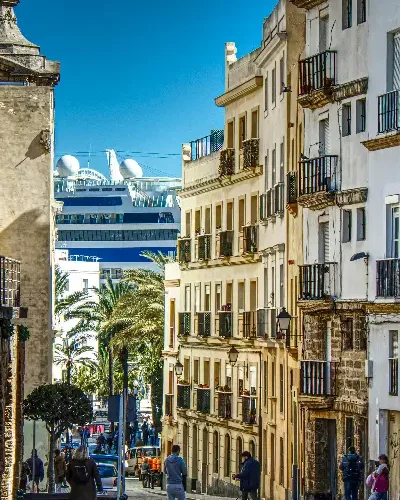
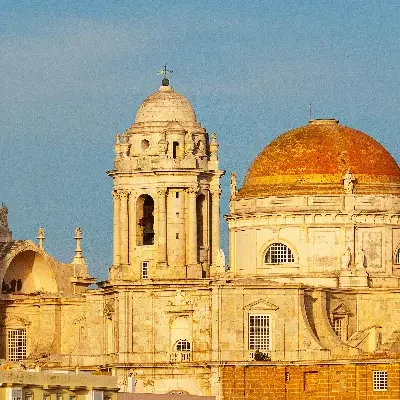
How do cannabis clubs work in Cádiz?
Cannabis clubs and associations in Cádiz operate under clear rules:
Restricted access: Only adults who are registered members may enter.
Requirements to become a member
To join a cannabis social club in Cádiz, you need:
• Be over 18 years old
• Present your ID card or passport
• In some cases, have an invitation from a member or register through collaborative platforms
• Pay an annual fee (usually between €20 and €50)
Where to find cannabis clubs in Cádiz?
The best way to find active cannabis associations is through platforms like ShivaMap or quick connection services such as El Capitan. These tools show verified clubs with user reviews, options for direct contact via WhatsApp or social networks, and filters by location or type of association.
Currently, there are at least four active cannabis associations in the city of Cádiz, each with different focuses: from therapeutic use to a more recreational and social environment.


Differences between cannabis clubs and coffee shops
Although many tourists confuse the cannabis social clubs in Cádiz with the coffee shops of Amsterdam, there are essential differences:
• Coffee shops are public establishments where cannabis is sold in a regulated manner (only in the Netherlands).
• In contrast, CSCs operate under a non-profit model: there is no direct sale, but members contribute collectively to cover cultivation costs.
Benefits of joining a cannabis club
Members of cannabis clubs in Cádiz highlight the following benefits:
• Safe and legal environments
• Guaranteed product quality
• Clean and comfortable facilities
• Community activities and educational workshops
• Sense of community and belonging
Can tourists join?
It depends on the club. Some accept temporary visitors by invitation, while others require local residency or a prior relationship with a member. The best thing is to contact the club directly and ask about their access conditions.
A look at cannabis culture in Cádiz and the role of associations
The province of Cádiz is not only famous for its beaches, gastronomy and festive atmosphere; it is also becoming an emerging reference point within Spain’s cannabis culture. Cannabis associations and clubs in Cádiz have evolved over time, creating regulated and welcoming spaces that cater to the needs of a diverse community, ranging from therapeutic users to occasional consumers. This phenomenon is partly due to the rise of alternative tourism and the growing interest in the responsible use of cannabis within a legal and controlled environment. Cádiz offers an attractive alternative to street or clandestine consumption: well‑organized, discreet associations that operate in compliance with current laws.
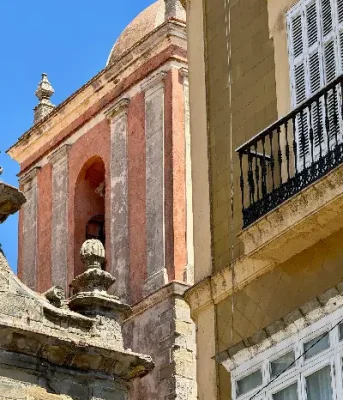
Frequently asked questions about cannabis clubs and associations in Cádiz
How do cannabis clubs work?
Cannabis clubs operate as non‑profit private associations formed by adults who gather to share cannabis consumption in a private, safe and controlled environment. Their structure is based on an associative, non‑commercial model in which members must register and accept internal rules before entering the facilities. Typically, new members must sign up, prove they are adults, accept the statutes and commit to responsible use without resale. The goal of these clubs is not to make profit but to be self‑sufficient through collective cultivation intended exclusively for their members’ consumption, thus complying with the legal principles that permit their existence. In cannabis clubs and associations in Cádiz and the rest of Spain, consumption is generally required to take place only inside the association and entry to the public is not allowed, nor is any link to illicit trafficking.
In addition, these clubs usually promote activities focused on information, risk prevention, cannabis culture and community coexistence. Responsible use is encouraged, avoiding behaviours that could cause legal or social problems, such as driving under the influence, sharing with minors or taking product outside the club. Each association sets its own internal rules on supply limits, cultivation methods, membership fees to cover expenses and systems for member participation. In this way, their operation resembles that of a cultural or social private club rather than a business or establishment open to the public. Although the legal framework is not completely explicit, the clubs are grounded in case law and in principles contained in association regulations.
How many plants can a cannabis club have?
The question about the number of plants a cannabis club can have is one of the most debated issues in the sector because there is no official figure clearly and universally established in Spanish legislation. However, the criterion used by lawyers and experts in the cannabis field is based on proportionality with respect to the number of members and the necessary production. In other words, a cannabis club or association in Cádiz cannot cultivate more than is reasonably necessary for the private shared consumption of its active members. This cultivation should be oriented toward collective self‑supply, not sales or large‑scale supply, since that could be interpreted as trafficking.
To determine the right amount, clubs usually calculate the average consumption per member and per month, adjusted to the number of plants or the necessary production. They also seek to strictly control access, inventory and storage, and maintain traceability and the cultivation process. Another fundamental point is that the cultivation should not be visible from the outside, thereby avoiding problems of public exposure or indications of commercial activity. Although there is no fixed legal limit, any excess can cause legal problems for the association. Therefore, many clubs choose to consult legal specialists and national associations to promote good practices and transparency. In conclusion, the number of plants will depend on the size of the club, its average consumption and strict compliance with a non‑profit, discreet association model.
Is a cannabis association legal?
In Spain, cannabis associations operate within a complex legal framework based on legal interpretations, court rulings and regulations related to the right of association and private consumption. There is no national law that specifically regulates the activity of cannabis clubs and associations in Spain, so their existence is only possible under certain conditions, provided they respect legal principles. The legality is supported by aspects such as private, non-public consumption; the absence of profit motive; proportional cultivation intended exclusively for the members of the club; and the requirement to be registered as a legal association. These entities must carry out their activities in private spaces where only previously identified members have access. The Spanish Supreme Court has established in various rulings that the activity of these associations may be accepted as long as there is no indiscriminate distribution, public promotion, unrestricted access or excessive stockpiling that could be interpreted as trafficking. In addition, some autonomous communities have attempted to create specific laws, but several have been challenged or partially annulled by general association and criminal regulations. Therefore, a cannabis association may operate legally if its activity is private, controlled, non-profit and oriented toward responsible consumption in a closed environment under supervision. You can see more in our article.
Smoking club requirements?
To join a smokers’ club or a cannabis social club, there are basic requirements that must be met throughout Spain. The first and most important is to be of legal age; in Spain you must be at least 18 years old, although some clubs set the minimum at 21 by internal decision. The second requirement is to have a valid official identity document, such as a DNI, NIE or passport. In many cases, a recommendation or invitation from a member is also requested. Clubs and associations operate under a closed, non-promotional model. Cannabis clubs and associations operate under a principle of shared responsibility, so members agree to internal rules on consumption, sharing expenses and respecting privacy. It is also required to pay a membership fee to help cover administrative costs and maintenance of the space, but never as payment for product. Another common requirement is contributing to the club’s cannabis cultivation, as well as complying with responsible consumption regulations. In some cases, especially when a therapeutic profile is claimed, medical documentation or a prior interview may be requested, although this depends on each club. In any event, the process should be transparent, informative and voluntary, avoiding any type of mass or ambiguous recruitment.
Why is 4:20 the time of the joint?
The expression “4:20,” “420” or “four twenty” has become a popular symbol within the global cannabis culture. Its origin dates back to the early 1970s in California, where a group of students known as The Waldos used this time to meet after class and search for an allegedly abandoned plantation. Over time, the term first spread among youth communities and later through music, especially bands linked to rock and reggae. The number began to be associated with the act of smoking marijuana and eventually was adopted as an international cultural code. April 20 (4/20 in the Anglo-Saxon format) has also become a symbolic date when events, concerts and gatherings are held in support of the normalization and regulation of cannabis. In cannabis clubs and associations in Cádiz, the reference to 420 is more than just a cultural wink, since the associations do not follow festive or symbolic hours but legal and responsible regulations. It is important to clarify that the number 420 is not related to any plant count or medical aspects; it is simply a cultural nod within the community.
What are the rules about smoking?
<p>In Spain, and particularly in places like Cádiz, the rules about smoking cannabis are closely linked to civic coexistence and public health. Cannabis consumption is only legally permitted in private spaces, in a safe environment and under very specific conditions. In the case of cannabis clubs and associations in Cádiz, consumption is only possible inside the premises, which must have restricted access only to previously registered members. Smoking in public spaces such as streets, parks, beaches, doorways or any place outside the club’s control is completely prohibited, even if it is private. If a club member is found smoking outside, they may receive an administrative sanction for consuming in public. Associations also establish internal rules to guarantee coexistence and responsible use: smoking near minors is not allowed, nor inside areas where it could disturb other members. It is also common to prohibit recording or photography devices inside the premises to protect the privacy of members. In addition, sharing or selling cannabis to non-members is absolutely forbidden, as this could be considered trafficking. These rules also include health warnings and recommendations for responsible consumption, especially for people with pre-existing conditions, minors (although they cannot be members) or first-time users. In short, the rules about smoking in cannabis clubs are aimed at maintaining a private, respectful and safe environment.</p>
How to form a cannabis club?
<p>Creating a cannabis club in Cádiz or anywhere in Spain requires following a series of legal, organizational and administrative steps. The first step is to establish a non-profit association, which involves drafting statutes, a founding act and registering with the National Registry of Associations or the corresponding regional registry. The purpose of the association must be clear: to promote responsible and private consumption of cannabis among its members. Once the association has been legally constituted, it is necessary to find a private venue that does not have free access and is not visible from the public street. This venue must have a municipal license for associative use, comply with safety and hygiene regulations and be suitable for the activity without disturbing neighbors. Internally, the club must establish a system for registering and controlling members, based on prior acquaintance, commitment to responsible consumption and verification of legal age. It is also essential to justify collective consumption and establish a system of fees to cover operational and cultivation expenses, as well as to have specialized legal advice to avoid any irregularities, as mismanagement can lead to criminal consequences. In Cádiz, the city council may require additional documentation or specific licenses to authorize the activity, so it is advisable to get well informed before starting the project. In short, forming a cannabis club is possible, but it requires organization, transparency and strict respect for existing regulations to operate legally.</p>
How much does 1 g of weed cost?
The price of 1 gram of cannabis, or “mota” as it is colloquially known, can vary considerably depending on the type of association, the variety cultivated, the growing methods, the quality of the product and the club’s internal quota system. In cannabis clubs and associations in Cádiz, cannabis is not sold directly like in a shop, as this would be illegal. Therefore members make voluntary financial contributions as a fee or compensation to cover the costs of collective cultivation. These contributions are usually calculated based on the number of grams the member wants to consume and typically range between €5 and €9 per gram, depending on the variety and quality. Some associations oriented toward therapeutic use or exclusive strains may have higher prices, while in larger clubs or those with well-organized own production, costs can be lower. Associations may also offer discounts for larger amounts or loyalty programs. It is important to note that direct monetary exchange for cannabis is not allowed; contributions are made as part of the internal system to ensure self-consumption and avoid the illegal market. Clubs prioritize traceability, product purity and transparency in cultivation methods. In general, although one cannot speak of a “sale price,” the usual contribution for 1 g of cannabis in a Cádiz cannabis club is around €6–€7, with variations depending on internal and external factors.
Smokers club near me
Looking for a smokers club near you in Cádiz may seem complicated at first glance, but in reality there are tools that make the process much easier. Cannabis associations operate discreetly for legal reasons, so they do not usually advertise openly. However, there are platforms such as ShivaMap or Cannabis After Club that allow you to locate active clubs based on your location, even from your phone. These websites usually show an interactive map with registered clubs, along with direct contact details via WhatsApp or Instagram. Remember that to access a cannabis smokers club in Cádiz you need to register as a member, be of legal age and present a valid identity document. It is not possible to “just look around” or enter without an invitation or prior contact. Most clubs prefer to introduce you to their internal rules before you can enter; they also value mutual trust and respect for privacy. These clubs are not bars, shops or coffee shops: they are private spaces for responsible consumption among adults. It is also important to remember that you cannot smoke on the street or carry cannabis outside the premises, so consumption must always take place inside. If you are in Cádiz city or nearby towns such as Chiclana, San Fernando or El Puerto, there are several options available, although access will always depend on each club’s rules. Using specialized tools to find a cannabis club near me is currently the safest and fastest way to contact a legal association. And if you are somewhere outside Cádiz, you can see all the clubs near you on this map.
If you are looking for a cannabis association in Chiclana, you are in luck: this town in Cádiz has several active and legally constituted social clubs. They operate under an associative model, always requiring members to be of legal age, register in advance and respect their internal rules. These associations provide a safe and private space for the responsible consumption of cannabis. You can easily find associations in Chiclana through platforms such as ShivaMap, where you will see their locations and direct contact methods. It is customary to contact them before visiting, as they do not allow access without an appointment. These associations also promote cannabis education and legal consumption, steering away from commercial or public practices.
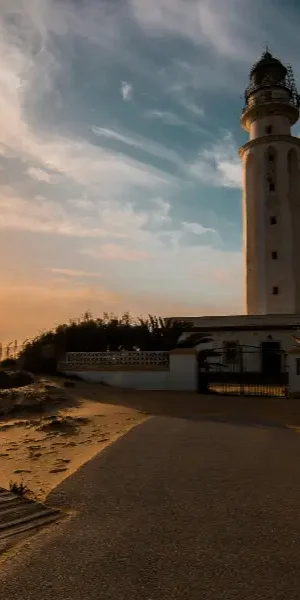

Verde Verde CSC Cádiz
Verde Verde CSC Cádiz es una de las asociaciones cannábicas más mencionadas en la ciudad. Aunque no todos los clubs tienen presencia pública o web, los usuarios suelen compartir opiniones positivas sobre su ambiente relajado, discreción y calidad del producto. Como todos los CSC, funciona bajo el modelo de asociación privada sin ánimo de lucro, donde el acceso está reservado a socios mayores de edad. Si quieres contactar, lo ideal es localizar su ficha en plataformas como ShivaMap o redes sociales, donde probablemente te ofrecerán un contacto directo para recibir más información sobre su proceso de admisión y normas internas.
Cannabis associations map
The cannabis associations map is the most effective tool for locating active clubs near you. Websites such as ShivaMap or platforms like Cannabis After Club offer interactive maps with up-to-date information on associations available in Cádiz and surrounding areas. Each marker usually includes links to their social media, access requirements and, in some cases, user reviews. This option is ideal so you don’t waste time and ensures you contact serious and verified clubs. Just remember that access is never free: you must register and meet the legal requirements to become a member.
Cannabis association near me
When someone looks for a cannabis association near me, they are usually interested in quick and legal access to a place where they can consume cannabis safely. In Cádiz, these types of clubs are distributed across different neighborhoods and municipalities and usually maintain a certain degree of discretion. Using geolocated platforms such as ShivaMap is the most effective way to identify which one is closest to your location. It is also advisable to read opinions, compare access conditions and contact them directly to confirm availability, requirements and schedules. The important thing is to choose a serious club with clear rules and a respectful atmosphere.
Rota cannabis association
In the town of Rota you can also find legal and operational cannabis associations. Although more discreet than in larger cities, these associations operate under the same principles: private consumption, non-profit and access limited to adult members. If you are in the area, the best option is to look up references on ShivaMap or ask in specialized forums. Contacting them before you visit is essential, as they do not accept drop-in visits. These associations usually have a stable community and in many cases organize workshops, events or activities related to home cultivation and responsible use.
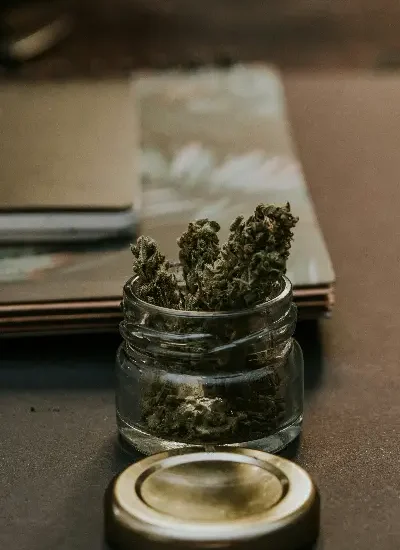
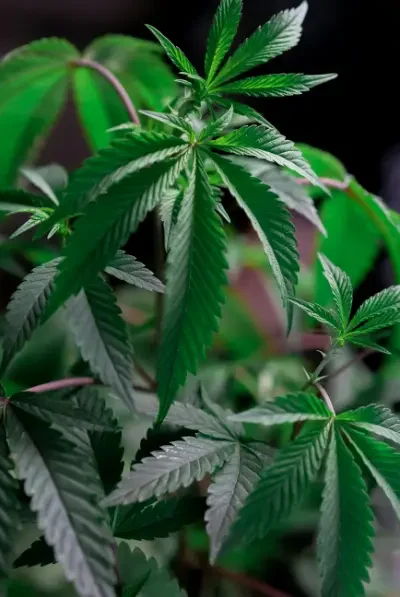
San Fernando Cádiz cannabis association
San Fernando, very close to the city of Cádiz, also has several active cannabis associations. These clubs are legally registered and offer private spaces for consumption, social gatherings and even cultural activities. Most of these social clubs keep a low profile and operate exclusively for registered members. As always, you must be of legal age, present your identification and comply with their internal rules. Platforms such as ShivaMap or local groups on social networks are a good way to contact them directly and obtain reliable information about how they operate, their rules and membership requirements.
El Toro Ciego
El Toro Ciego is one of the names that has been gaining popularity on Cádiz’s cannabis scene. Although not all information is publicly available, this type of club usually operates as a closed association with a focus on product quality and member privacy. Like other CSCs in Cádiz, they operate exclusively for registered members who are adults with proper documentation. If you want to learn more about El Toro Ciego or contact them, the best option is to look for them on platforms like ShivaMap or on social networks specific to the Cádiz cannabis scene, where they often provide access by invitation or recommendation.
